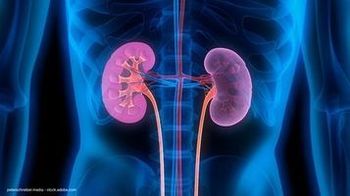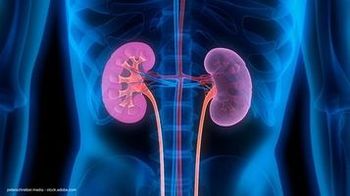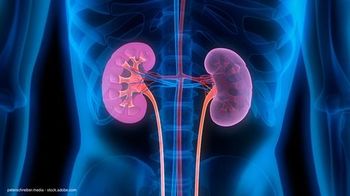
New advanced PCa agent improves castration-resistant survival
Patients with metastatic castration-resistant prostate cancer who have received prior chemotherapy containing docetaxel (Taxotere) showed a significant improvement in overall survival when treated with abiraterone acetate (ZYTIGA) plus prednisone compared with patients treated with prednisone plus placebo, the authors of a phase III trial reported.
Patients with metastatic castration-resistant prostate cancer who have received prior chemotherapy containing docetaxel (Taxotere) showed a significant improvement in overall survival when treated with abiraterone acetate (ZYTIGA) plus prednisone compared with patients treated with prednisone plus placebo, the authors of a phase III trial reported.
Results of the study, known as COU-AA-301, were published in the New England Journal of Medicine (2011; 364:1995-2005).
The randomized, placebo-controlled, multicenter study included a total of 1,195 patients randomized 2:1 to receive abiraterone, 1,000 mg daily, in combination with prednisone, 5 mg twice daily, or placebo in combination with prednisone, 5 mg twice daily (control arm). Abiraterone, an oral androgen biosynthesis inhibitor, received FDA approval in April 2011 for the treatment of men with metastatic castration-resistant prostate cancer who have previously received docetaxel.
Results showed that at a pre-specified interim analysis, treatment with abiraterone in combination with prednisone resulted in a 35.4% reduction in the risk of death (14.8 months vs. 10.9 months [hazard ratio=0.65; 95% CI: 0.54, 0.77; p
"Given that men with metastatic castration-resistant prostate cancer have few options, we are pleased with the results of this rigorous study, which show that abiraterone acetate may extend survival in these patients," said lead author Johann S. de Bono, MD, PhD, of the Royal Marsden NHS Foundation Trust, London. "The data indicate that abiraterone acetate has the potential to meet a significant unmet need for these patients."
Dr. de Bono has received honoraria and consulting fees from Merck, Pfizer, AstraZeneca, Johnson & Johnson, Medivation, and Genentech.
Data from COU-AA-301 were also presented at the AUA annual meeting in Washington. Look for a more detailed report of these study findings in an upcoming issue of Urology Times.
Newsletter
Stay current with the latest urology news and practice-changing insights — sign up now for the essential updates every urologist needs.





